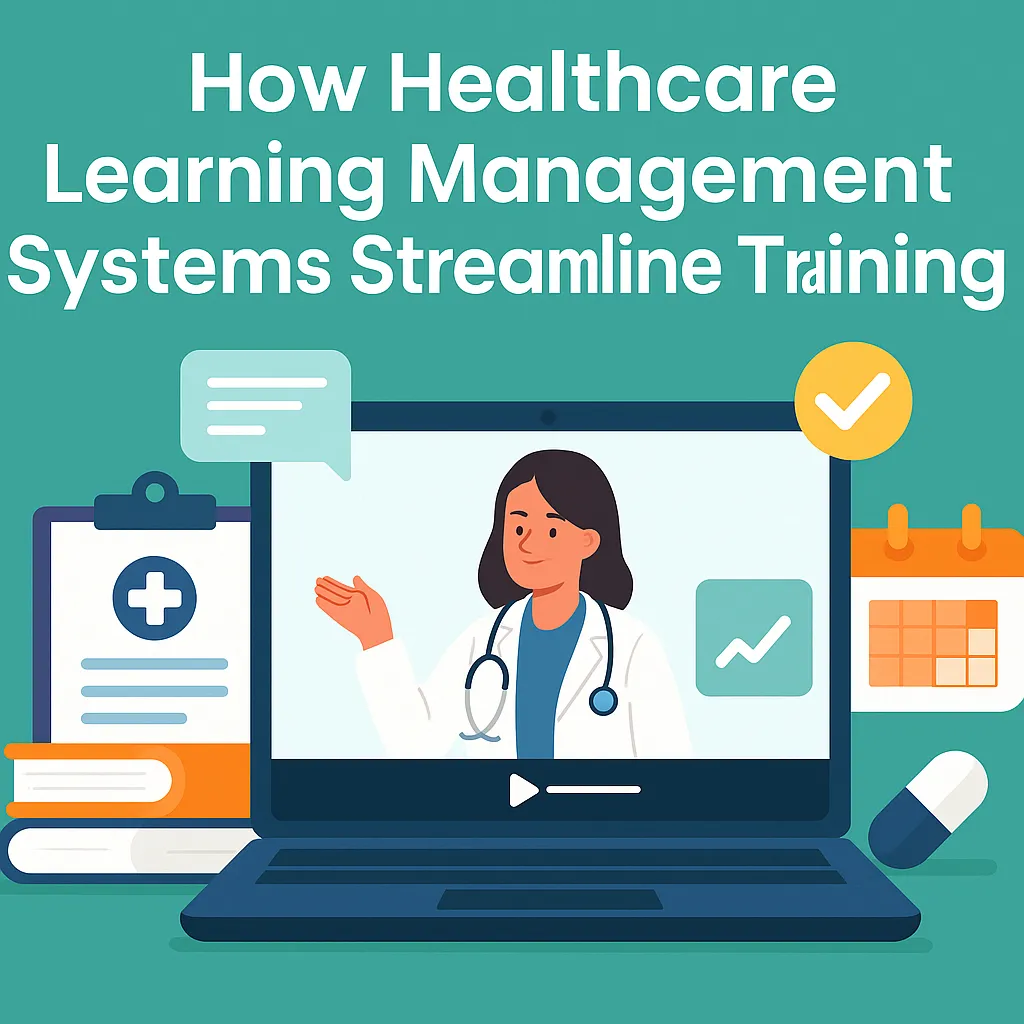How Healthcare Learning Management Systems Streamline Training

Healthcare professionals require continuous learning to keep up with ever-evolving medical knowledge and procedures. A Healthcare Learning Management System (LMS) is essential for effectively organizing and delivering this education. This article will detail how that type of system simplifies training so that healthcare providers stay up to date and compliant.
Enhanced Accessibility
One of the main benefits of a Healthcare Learning Management System is accessible training. Doctors, nurses, and healthcare administrators can access the courses they need whenever they need them and wherever they are. This flexibility enables learners to learn at their own pace at a time that best suits them, which saves time and resources, as it does not require physical classrooms.
Custom Learning Pathways
A Healthcare LMS tailors and personalizes training by helping build courses for each employee based on their needs and roles, and allowing for customization. This approach means all staff can receive relevant information that works for them and upgrade their skills. The LMS caters to professional development in a personalized direction by focusing on specific competencies.
Delivering Efficient Tracking And Reporting
As with all educational initiatives, tracking progress is essential. A healthcare LMS provides powerful tracking capabilities to track course completion rates, quiz scores, certification status, etc. This data-based approach ensures that all employees are up to date and helps identify if more training is necessary.
Increased Employee Engagement
Training can sometimes feel like a chore. However, a Healthcare LMS can boost employee engagement by making learning more appealing. Gamification elements, such as badges and leaderboards, motivate staff to complete courses and achieve their training goals. An engaged workforce is more likely to apply new skills, leading to better patient outcomes and job satisfaction.
Cost-Effectiveness
You can achieve substantial cost savings by implementing a healthcare LMS. Conventional training opened the door for all movement and settlement costs, while handling business printing costs mostly became expensive. An LMS eliminates these costs by providing digital courses and resources. It also reduces reliance on hiring outside trainers, who can be costly.
Consistency and Standardization
In healthcare, it is critical to ensure that the entire staff receives the same quality of training. You can achieve this standardization in the learning content using a Healthcare LMS, which is the best way to provide uniformity in the training. It allows for consistency among staff by enabling every employee to have the same foundation, which minimizes the potential for mistakes when caring for a patient. Standardized training also helps in following industry regulations.
Highly Interactive Content
A good quality learning experience has a lasting effect on memory and understanding. A Healthcare Learning Management System usually contains interactive quizzes, videos, simulations, and more. Such tools enable a greater grasp of things and allow you to remember information faster. Interactive content can even recreate real-life scenarios by showcasing realistic environments that staff members can prepare for when it comes time to perform in the real world.
Scalability
Healthcare organizations tend to grow and shrink in numbers. A Healthcare LMS is scalable and can easily handle more or fewer users. The system continues to adapt to the organization as part of training new employees or upskilling current staff. This scalability ensures it continues to be cost-effective even if an organization diversifies or evolves.
Compliance and Certification
The top priority is ensuring compliance with healthcare regulations. An LMS for healthcare helps ensure that all employees fulfill vital certification requirements. This system can automate reminders for forthcoming renewals and record which tech is compliant, which means fewer demands for healthcare administrators and up-to-date certifications, which protects against any potential legal exposure.
Greater Retention of Information
Introducing the same learning material multiple times helps you memorize it thoroughly. One of the features of a healthcare LMS is that your staff can visit courses and materials whenever the situation demands them. Also, multiple retrieval reinforces knowledge over time and helps retain it better. Reviewing content allows staff to refresh their knowledge and ensure they are up-to-date and capable.
Conclusion
A Healthcare Learning Management System streamlines training and offers several advantages. The benefits are apparent: improved access, tailored education, efficiency in tracking, and cost savings. An LMS ensures that healthcare professionals are skilled, compliant, and ready to face challenges by providing consistent, engaging, and scalable training solutions. Utilizing an LMS is merely a step in the effective use of healthcare, as the movement continues to innovate, support continued professional development, and improve patient care outcomes.